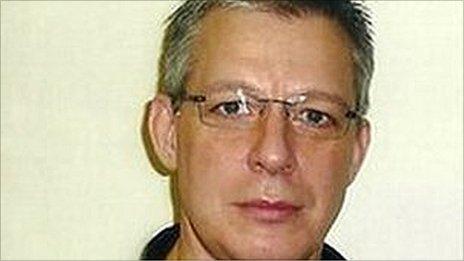White House Farm: Who is Jeremy Bamber?
- Published
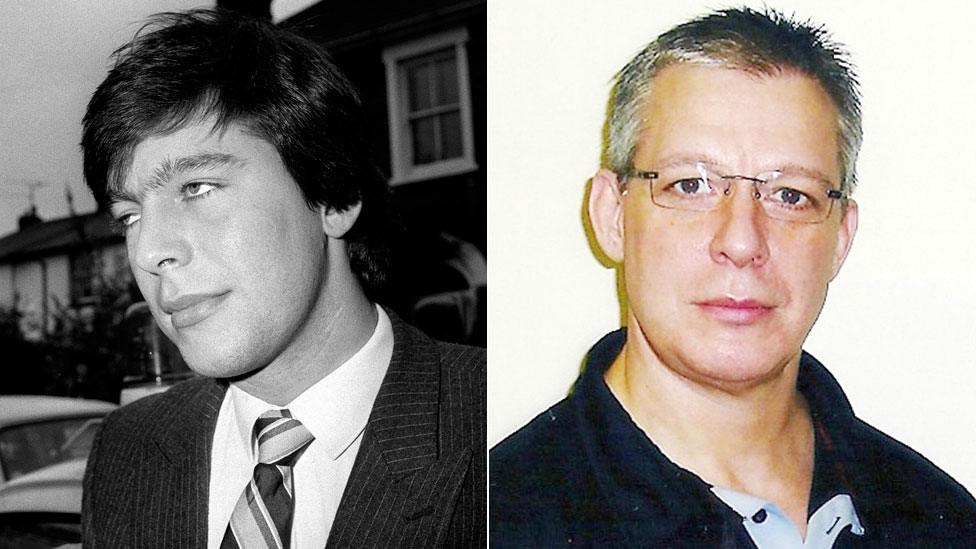
Jeremy Bamber in 1985 (left) and in a later, undated photo (right)
A six-part drama, White House Farm, begins later, telling the story of the killing of five members of a family at their Essex farm house. But, 35 years on, why is there still so much interest in the case and the man convicted of the murders, Jeremy Bamber?
Bamber was found guilty of murdering his adoptive parents, sister and her twin sons after all five were found with gunshot wounds at their Georgian farmhouse in Tolleshunt D'Arcy, Essex, on 7 August 1985, when he was 24.
The scene had been made to look like a murder-suicide, with his sister Sheila Caffell, who had schizophrenia, initially thought to have carried out the killings before turning the gun on herself.
Born in January 1961, Bamber was put up for adoption and taken in by Nevill and June Bamber when he was six months old.
Prior to the murders he had been working on the family farm and living in a cottage in nearby Goldhanger, which was owned by his father.
Bamber has always denied the murders, claiming Ms Caffell was responsible.
There have been several appeal attempts and Bamber has an active group of supporters who believe he did not get a fair trial.
His former brother-in-law Colin Caffell, Sheila's ex-husband and father of murdered Nicholas and Daniel, six, said Bamber was "charismatic" and "charming".
He said: "He was incredibly charismatic and I am sure he is just as charming today as he was then.
"Psychopaths, and while I am not an expert I think he is one, are naturally charismatic."
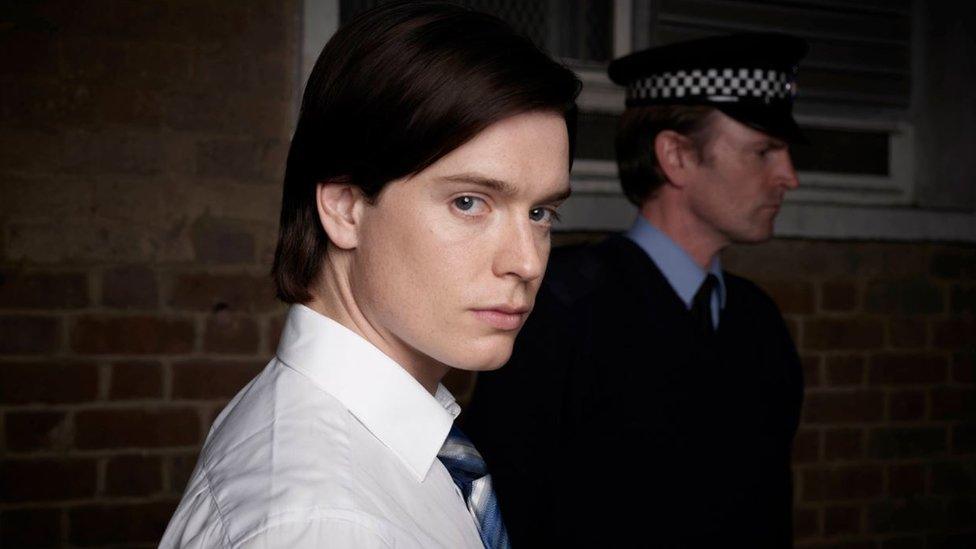
Freddie Fox as Jeremy Bamber in White House Farm
What happened at White House Farm?
In the early hours of 7 August 1985 a caller giving his name as Jeremy Bamber rang Chelmsford Police Station saying he had received a call from his father saying: "Your sister's gone crazy and she's got a gun."
He told them that after the sound of a shot the line had gone dead.
Hours later when armed officers broke into White House Farm they found 61-year-old Nevill shot eight times and beaten. Upstairs Nicholas and Daniel were found dead in their beds while June and Sheila's bodies were in the master bedroom.
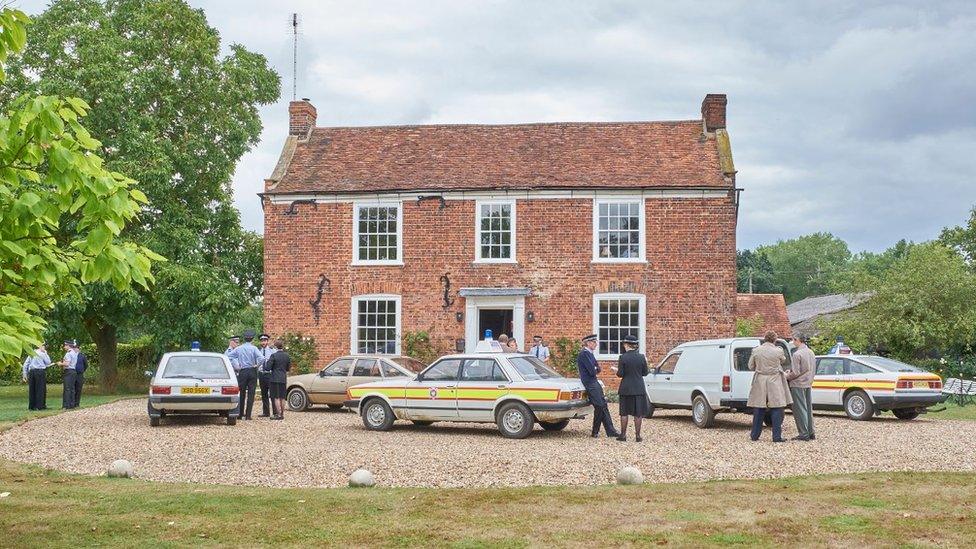
White House Farm as depicted in the television show of the same name
Why did he do it?
The Bambers were a wealthy farming family and Jeremy became a suspect in their murder after his then-girlfriend told police he had been after his inheritance.
At first officers suspected Ms Caffell, who was found with her fingers around the .22 calibre rifle used to shoot all five, but suspicion fell on Bamber after Julie Mugford told police he had plotted to kill his parents for his £436,000 inheritance.
During his 1986 trial she told the court he had talked about sedating them and setting fire to the farmhouse before changing his mind and planning to hire an assassin.
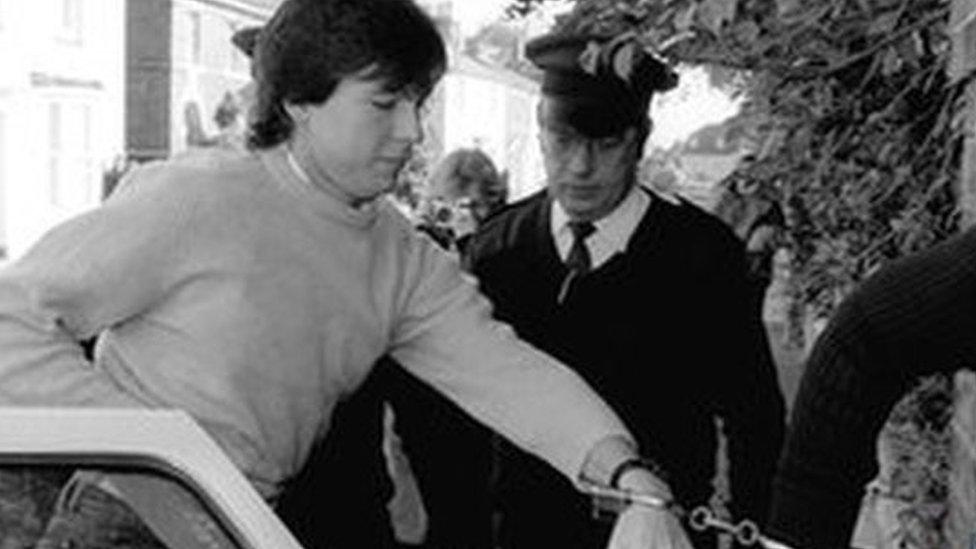
Bamber has pledged to continue to battle against his conviction
What was the evidence against him?
As well as Ms Mugford's testimony, a silencer for the murder weapon was found in a cupboard three days after the killings.
It allegedly had traces of Ms Caffell's blood on it and, given her injuries, the trial was told she would have been unable to place it in the cupboard before her death. No traces of gun oil were found on her nightdress.
The sentencing judge described him as "warped and evil beyond belief".
Why do people believe he is innocent?
Bamber has never admitted to the killings and has had several appeals against his convictions rejected or not allowed to be heard.
He has plenty of supporters who have signed online petitions and continue to campaign for a retrial.
His current lawyers had asked for ITV to postpone showing White House Farm until the latest court hearing, a judicial review bid against the Director of Public Prosecutions, had been heard.
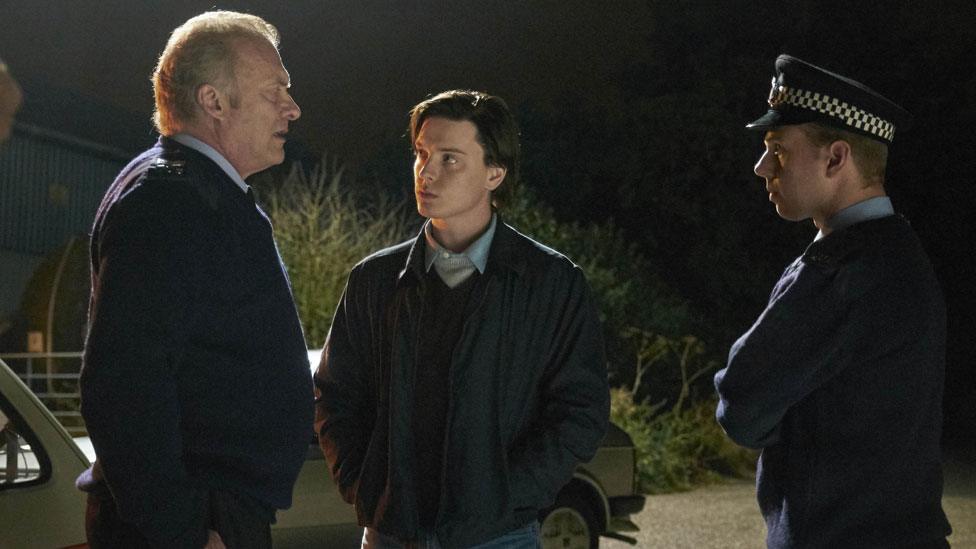
Freddie Fox (centre) playing Jeremy Bamber
Human rights campaigner Peter Tatchell said Bamber "clearly did not have a fair trial" as evidence had been suppressed.
He said: "I have only ever corresponded with Jeremy Bamber by letter and he comes across as a very balanced, kind, intelligent man.
"I cannot say whether he is guilty or not, but certainly from the evidence I have heard from people who have met him, and evidence of former prisoners with him, he does not fit the profile of a mass murderer."
White House Farm airs at 21:00 GMT on Wednesday on ITV.
Related topics
- Published8 January 2020
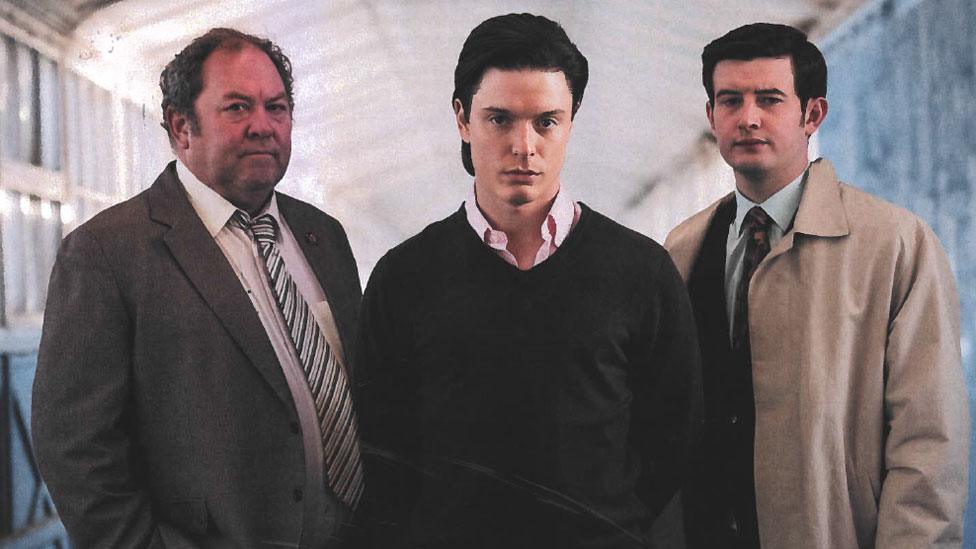
- Published15 August 2015
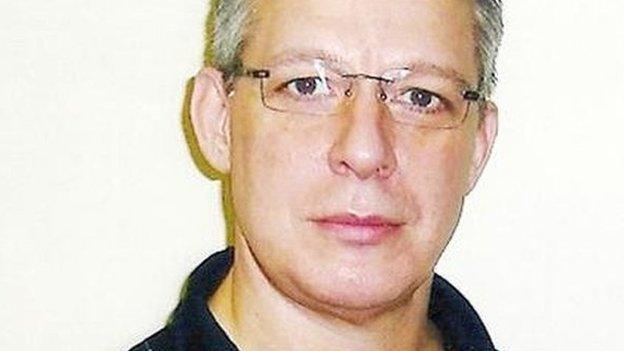
- Published15 July 2015
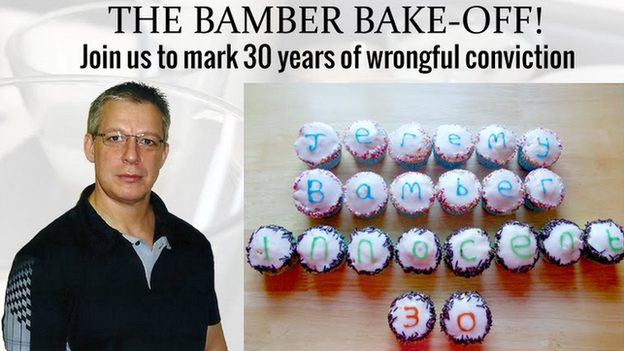
- Published29 November 2012
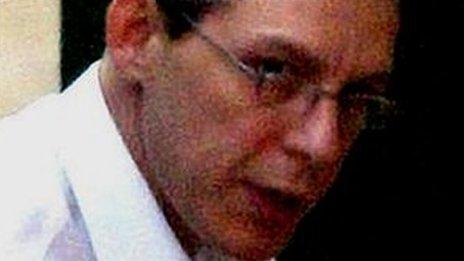
- Published16 January 2012
- Published26 September 2011
